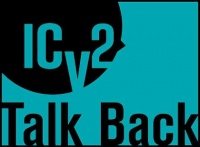 Ed West, an editor in the book publishing field, from Garden City, Michigan read Steve Bennett's recent column (see "Confessions of a Comic Book Guy--Better... But Still Not Good") and had this to say about Marvel's and DC's current editorial direction.
Ed West, an editor in the book publishing field, from Garden City, Michigan read Steve Bennett's recent column (see "Confessions of a Comic Book Guy--Better... But Still Not Good") and had this to say about Marvel's and DC's current editorial direction.This article should serve as a wake-up call to all print publishers, not just those who produce comic books. But I promise to focus only on the latter, and my comments apply to kids and adults. As a professional who works in the media, and who tries to maintain a balanced view of current trends in comics, a few things I consider important.
1) Nobody cares about seeing the names Smith, Jones, Whoever at the top of the cover. Nobody. The following is not an appeal to nostalgia, but a series of facts. (A) The title and accompanying art should, like a movie, help draw the reader into another world. It should be a window, a prequel, if you will, as to what's to come, just like a movie. (B) No book cover, much less magazine cover, much less a comic book cover should feature stretched and eye-distracting logo nonsense. Or has everyone lost the fact that due to the internet, for one, flash comprehension is essential?
2) Experiment all you want, but don't do it every issue or every other issue. It creates confusion. Gradually introducing a reader, or potential reader, to a new logo is one thing, but constant change is disorienting. For example, I scan the racks looking for my favorite title, I expect to see the same or similar logo.
3) Go ahead, relaunch, rearrange, and throw issue zeroes out all over the place. Why? To confuse people further?
4) It hasn't crossed the minds of the top two to go out to selected venues and ask old and young alike about what they like or don't like about current comics, and for non-readers, why they don't read them, or if they had, why they stopped?
5) What started in the 1970s as a well-intentioned call for expanding the types of subject matter in comic books and expanding the involvement of creators regarding ancillary products and films, quickly degraded into the production of a ton of landfill. I spoke with all of the creators in the 1970s who left comic books to go on to do what they wanted. And with very rare exceptions, they turned their tremendous talents toward other things, or meandered about, either not doing much or even knowing what to do with their creative "freedom," or producing non-commercial work. That is why Image Comics will never be in the top two.
6) Has it crossed anybody's mind that people don't like current trends in comics, at all? That some people are sick and tired of art that is so stylized that it hurts the eyes, or stories and art where the heroic is totally lost and all that matters is that the "hero" is a little less brutal than the villain or racked up a lower body count for that issue? Or does the word superhero no longer actually mean someone who is obviously heroic and virtuous, and acts above and beyond the call because he has powers and abilities others don't?
7) I'm certain I'm not the only one who has noticed an agenda creeping into comic books, including, especially, the big two. I'll get my politics and indoctrination elsewhere. And people really resent that.
8) You can't convince the average person that you will do it your way and they will like it. That's not going to happen. And due to the long history of the big two, you can't demean your classic hero by using him in dark, brutal and vigilante stories. People always root for the good guy, not some alternative universe where good is relative. Yes, comic book stories are fantasies, but people like uplifting stories. Like football, they want their favorite team to win, and win fair and square.
So, to Marvel and DC, talk to people. Don't live in your own personal, agenda driven worlds and imagine people will automatically like it. Many of us don't and won't. And comics are still primarily considered a medium designed around values that mean something and are meant primarily for kids.
The opinions expressed in this Talk Back are solely those of the writer, and do not necessarily reflect the views of the editorial staff of ICv2.com.


